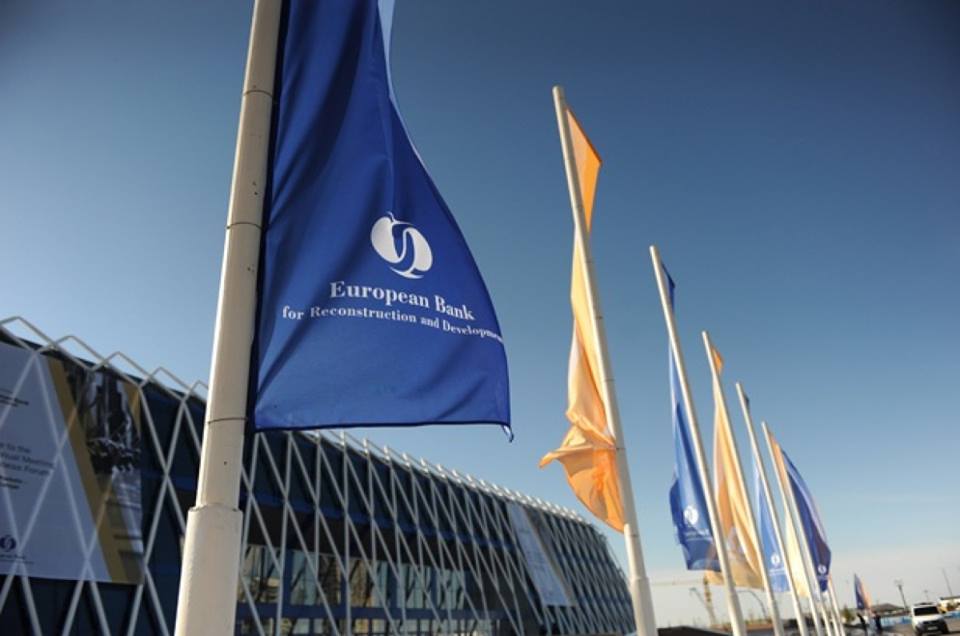ASTANA – The European Bank for Reconstruction and Development (EBRD) and Kazakh government provided subsidies for management consulting services last year to 177 small and medium-sized enterprises (SMEs). Special efforts were also made to promote female entrepreneurs, as 62 entities obtained consulting and financial aid within the EBRD’s “Women in Business” programme. Additional support will be provided to 280 entities in 2018.
EBRD reported on the results of the SME development programme during a Feb. 23 meeting attended by Deputy Minister of National Economy Serik Zhumangarin and other programme sponsors, such as Shell Kazakhstan, Tengizchevroil, the Atameken National Chamber of Entrepreneurs, Damu Entrepreneurship Development Fund and Association of Businesswomen.
“Kazakhstan is number one among 26 countries in terms of SME support from EBRD, thus uniting efforts in development of municipal infrastructure, green economy, renewable energy, improving global competitiveness and privatisation,” said EBRD Deputy Director in Kazakhstan Askar Namazbayev.
SMEs, one of the nation’s economic growth drivers, accounted for 26.8 percent of Kazakhstan’s GDP in 2017; the long-term goal is to increase its contribution to 50 percent. SME production volume in September was 14.5 trillion tenge (US$45.5 billion), a 29-percent increase compared to the corresponding period in 2016.
“We highly value the effectiveness and quality of work done by EBRD to support local businesspeople in Kazakhstan since 2001. In general, business conditions are favourable, as there are 1,165,000 active enterprises, 513,000 or 45 percent of which are led by women,” said Zhumangarin.
Local SMEs can receive an EBRD subsidy to confer with local consultants and foreign experts who can advise on strategic planning, marketing, process and finance management, IT, quality management and accounting. Thus, up to 50 percent of expenses, or a maximum of 10,000 euros (US$12,430), is financed by the government, Shell Kazakhstan and Tengizchevroil. Since 2001, 1,300 entities have received consulting support.
“In 2017, 177 SMEs were provided with consulting services, 154 of which were advised by local consultants and 23 were consulted by industry experts. The entities come from machinery, agribusiness, FMCG (fast-moving consumer goods), textile, fashion and metalworking industries,” said SME support programme manager Anar Kassymova.
She stressed the benefits of consulting services for SMEs. With the help of Damu and Atameken, EBRD held consulting days in cities where it is not represented, such as Karaganda, Kokshetau, Oskemen and Pavlodar.
“The local consulting industry experienced significant growth, as the number of firms increased from 207 in 2013 to 477 in 2017. Kazakhstan was also chosen as a venue for the International Council of Management Consulting Institutes (ICMCI) conference with 140 experts from 33 countries in September 2017 and CMC Kazakhstan got a permission to hold certification exams for local consultants,” she added.
The EBRD office in Kazakhstan also supports business initiatives of the country’s women. Its “Women in Business” programme provides female entrepreneurs with grants for consulting, mentorship and credit loans from financial institutions.
“In 2017, 62 entities managed by females were supported. Moreover, our mentorship programme received positive feedback. To illustrate, 28 pairs participated in the programme in 2017; however, this year we received 150 applications and will make 50 pairs of mentors and mentees. We also started holding Women Entrepreneurship Day in November,” noted Kassymova.
Private contributors Shell Kazakhstan and Tengizchevroil focus primarily on the West Kazakhstan region. EBRD Associate Director and Regional Programme in Kazakhstan and Mongolia head Holger Wiefel noted they will try to translate their experience across other industries and regions in 2018. The focus will still be on youth, women and the IT industry.
“We plan to launch the ‘Fast Track Women’ initiative to accelerate the development of entities led by females, but will focus on a small amount initially. Moreover, we want to work with microcompanies in the regions, develop dairy companies and continue working on logistics, machinery and light industry. In total, around 280 projects are planned for 2018,” he said.
Among the successful projects is Orthopaedics Academy, which attracted consultants to construct automated business processes and accounting software, as well as initiate a loyalty programme. The company was the first in Kazakhstan to launch a mobile app allowing its clients to schedule appointments with doctors and buy goods. It has treated 100,000 patients since 2009 and the consulting services have enabled the company to further increase its customer pool by 12 percent.

